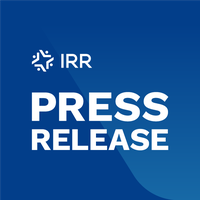
Health minister Aaron Motsoaledi is adamant that the National Health Insurance system must be imposed at any cost. He has emphasised that private medical aids in their current form must be scrapped and that no price is too high for NHI – including collapsing the Government of National Unity of which he is a member.
There is a further cost to the county of which the minister should be made aware. There are only around 862,000 individual taxpayers in South Africa whose annual income exceeds R750,000, according to Treasury estimates for 2024/25. This small group of people contributes 58.6% of all personal income tax, or 23.2% of all the taxes the government expects to collect, the gross tax revenue.[1]
It is safe to assume that practically all of these taxpayers have private medical insurance. If any group in South Africa has the choice of emigrating when confronted with intolerable government policy, it is this group. They have the skills, work experience, connections and money to leave the country.
Threatening this group with taking away their access to private health care places at risk almost a quarter of all the taxes the state takes in a year. If these taxpayers leave, the state will no longer collect enough revenue to maintain current spending on social grants and civil servant wages, never mind money for infrastructure investment in water, electricity, and transport.
This is without taking into account the unknown billions the system will cost to implement, the untold corruption it will enable, the exodus of health-care professionals it will trigger, or the devastation the evisceration of South Africa’s world-class private health care will wreak on the wellbeing of South Africa’s people.
The NHI poses a similar threat to corporate income tax. In the 2021 tax year – the latest for which breakdown data are available – there were only 842 companies in South Africa with an income over R100 million. They contributed 72.4% of all corporate income tax, or 13.2% of the total tax take.[2] It is safe to assume that almost the entirety of their mid- to higher-level staff will have private medical insurance. If they emigrate because they do not want to be deprived of the ability to choose their health care, corporate profits will plummet – as will tax revenue.
The IRR therefore reiterates its call to the minister:
The high-quality private health care which South Africans want can be made more widely accessible by doing the following:
Mr Motsoaledi’s willingness to place in jeopardy the future of the Government of National Unity in pursuit of an unworkable system is reckless and ill advised. The IRR will write to the minister urging him to take seriously the warnings and constructive criticism he has received from health-care professionals, industry associations, civil society organisations and business groupings.
Media contacts: John Endres, IRR CEO Tel: +27 11 482 7221 Email: john.endres@irr.org.za
Makone Maja, IRR Campaign Manager Tel: 079 418 6676 Email: makone@irr.org.za
Media enquiries: Michael Morris Tel: 066 302 1968 Email: michael@irr.org.za
[1] Source: https://www.treasury.gov.za/documents/National%20Budget/2024/review/FullBR.pdf
[2] Source: https://www.sars.gov.za/wp-content/uploads/2023-Tax-Statistics-Main-Publication-compressed.pdf
 LETTER | Rethinking BEE premiums could unlock billions for growth - Business Day
Feb 19, 2026
LETTER | Rethinking BEE premiums could unlock billions for growth - Business Day
Feb 19, 2026
 IRR’s 2026 Budget tips for Minister Godongwana
Feb 19, 2026
IRR’s 2026 Budget tips for Minister Godongwana
Feb 19, 2026
 Corruption-busting must begin with next week’s Budget – IRR
Feb 18, 2026
Corruption-busting must begin with next week’s Budget – IRR
Feb 18, 2026
 Hold Ramaphosa to account for his SONA admissions of failure, IRR urges MPs
Feb 17, 2026
Hold Ramaphosa to account for his SONA admissions of failure, IRR urges MPs
Feb 17, 2026
 Corrigan pt. II: FMD crisis — How did we get to this point? - Biznews
Feb 16, 2026
Corrigan pt. II: FMD crisis — How did we get to this point? - Biznews
Feb 16, 2026

 LETTER | Rethinking BEE premiums could unlock billions for growth - Business Day
Feb 19, 2026
LETTER | Rethinking BEE premiums could unlock billions for growth - Business Day
Feb 19, 2026
 IRR’s 2026 Budget tips for Minister Godongwana
Feb 19, 2026
IRR’s 2026 Budget tips for Minister Godongwana
Feb 19, 2026
 Corruption-busting must begin with next week’s Budget – IRR
Feb 18, 2026
Corruption-busting must begin with next week’s Budget – IRR
Feb 18, 2026
 Hold Ramaphosa to account for his SONA admissions of failure, IRR urges MPs
Feb 17, 2026
Hold Ramaphosa to account for his SONA admissions of failure, IRR urges MPs
Feb 17, 2026
 Corrigan pt. II: FMD crisis — How did we get to this point? - Biznews
Feb 16, 2026
Corrigan pt. II: FMD crisis — How did we get to this point? - Biznews
Feb 16, 2026